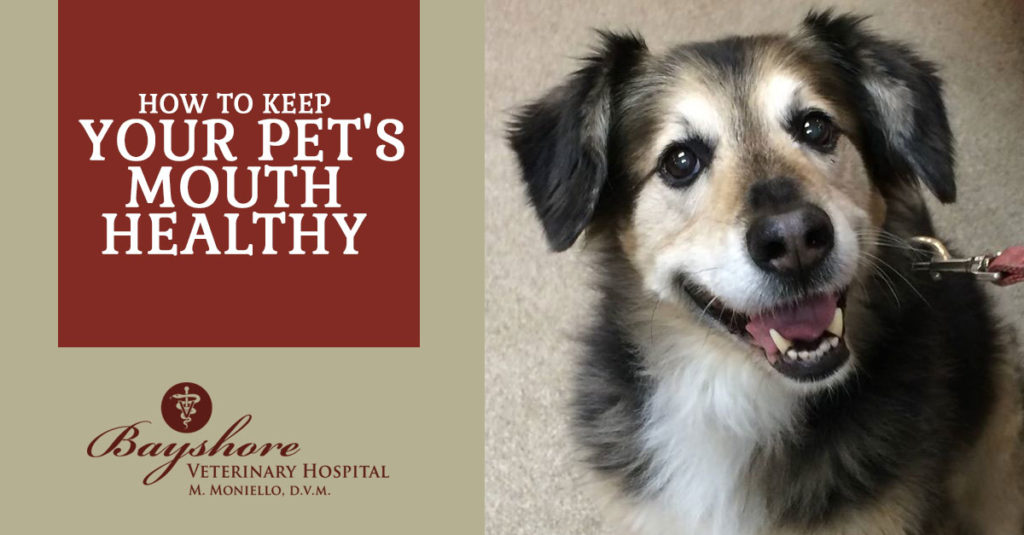Just as with humans, dental disease can have debilitating consequences for your pets! Bad breath in dogs and cats is not a “given”, and should never be ignored. Generally it’s the first sign of a plaque forming bacteria build-up that when left untreated, can lead to serious gum disease, infection, and tooth decay. With time, the inflammation and infection in the mouth becomes more destructive, and often migrates from the mouth to the heart, lungs, and kidneys where it negatively impacts your pet’s overall health.
Sound dental hygiene begins with an evaluation of puppy and kitten teeth to identify any potential problems that may exist. As a general rule, the majority of dogs and cats start to exhibit dental disease of at least a Grade 1 level by age 3. A teeth cleaning, performed under anesthesia, would be recommended to halt progression, and restore the mouth to good health. It’s important that dental exams be a routine part of your pet’s annual exam. An evaluation of the mouth by your veterinarian will identify any areas of concern. There may be times that your veterinarian recommends dental x-rays to confirm conditions under the gum line where dental disease can be more extensive, yet difficult to assess. Small breeds are often particularly susceptible to dental disease, particularly abscesses and advanced decay under the gum line, and can require multiple extractions. It’s not uncommon for owners to be completely unaware that serious dental problems exist. As the disease progresses, symptoms can present, such as decreased appetite, because eating becomes painful, teeth can appear discolored, there can be pawing around the mouth, pain can manifest as lethargy and depression, there can be an inability to chew hard kibble or treats, and of course, bad breath. Cats may also begin to drool excessively. However, it’s always important to remember that cats are very skilled at hiding problems, making their annual oral exams even more important!
Tooth brushing, and oral dental chews will go a long way towards supporting a healthy mouth, but alone, they will not prevent dental disease. These aids should be used as a maintenance component of a comprehensive plan of dental hygiene.
February has long been designated “Pet Dental Health Month” because dental health is a cornerstone of prevention in Veterinary Medicine. In support of this effort to raise awareness of the importance of pet dental health, we offer discounted routine dentals throughout the month of February. All dentals are performed under anesthesia, and will include evaluation of each tooth for stability and decay, removal of all accumulated tartar, and all teeth will be polished to smooth the tooth surface, removing any rough spots or grooves resulting from tartar growth. Call (732) 671-3110 for an appointment!

